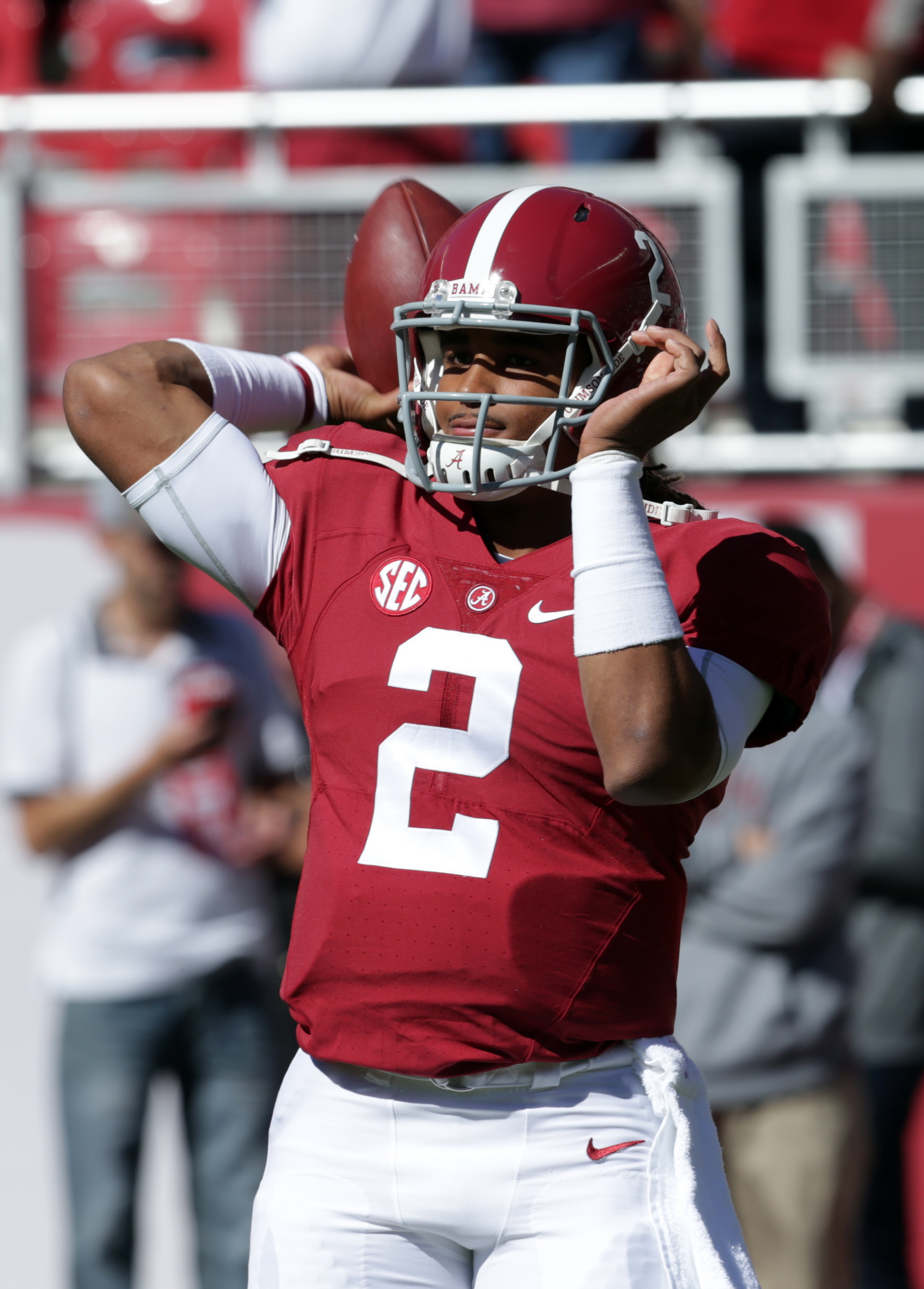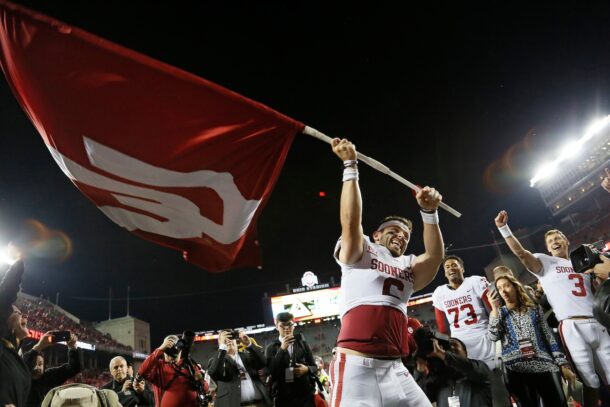
Unfortunately, Alabama-Florida State a magnificent matchup with a meaningless outcome
By John Crist
Published:
The 2017 campaign in the SEC finally begins this weekend, with Alabama-Florida State highlighting five neutral-site matchups.
The Crimson Tide were a few precious seconds away from claiming their fifth national championship in eight seasons for coach Nick Saban, so they’re No. 1 in the AP Poll again and look to be as loaded as ever on both sides of the football.
As for the Seminoles, they’re set up to make a deep run themselves. Despite the fact that they lost their best offensive and defensive player from 2016 — running back Dalvin Cook and pass rusher DeMarcus Walker — coach Jimbo Fisher and Co. are similarly stacked in every phase. They’re No. 3 in the rankings and received a fair share of first-place votes.
The game is being billed as the biggest Week 1 tilt in the history of the sport. Unfortunately, the outcome is borderline meaningless.
Needless to say, ‘Bama is in the SEC and FSU is in the ACC. No matter who wins Saturday at the brand new Mercedes-Benz Stadium in Atlanta, or who loses for that matter, it won’t have any genuine effect on either conference’s standings.
We’re three years into the College Football Playoff, and both the SEC and ACC are three-for-three gaining entry. The Tide are the only team in America to make the Final Four in every season and have done so as champions of the SEC. The ACC is also perfect, sending its title winner — the ‘Noles in 2014, Clemson in 2015-16 — each time.
Whether Alabama or Florida State wins or loses, be it in blowout or nail-biting fashion, each remains the favorite in its respective league.
One of the reasons the SEC has come back to the pack to some degree isn’t necessarily the ascent of the other conferences. It’s the fact that the Crimson Tide have separated themselves from the 13 programs in their league.
While ‘Bama ran off a 12-0 regular season, clobbered East champ Florida in the conference title game and then mauled Washington in the national semifinal before finally falling to Clemson in the end, every other squad in the SEC — even Sugar Bowl invitee Auburn — lost at least four times. The Tide are head-and-shoulders better again in 2017.
Whether Alabama or Florida State wins or loses, be it in blowout or nail-biting fashion, each remains the favorite in its respective league.
Unless all hell breaks loose and the winner has three defeats, whoever emerges atop the conference is going to the playoff.
Alongside the Big Ten, the ACC is the other league that has clearly narrowed the gap with the SEC. Not only did Clemson secure the national championship this past year, but the Seminoles grabbed the final installment of the BCS in 2013.
Like the SEC, the ACC is a bit out of balance from a divisional perspective. The Atlantic features FSU and Clemson as its resident blue bloods. Louisville — the defending Heisman Trophy winner, quarterback Lamar Jackson, returns — destroyed the ‘Noles a year ago and nearly upended Clemson in one of 2016’s most entertaining contests.
Although the Coastal is weak since Miami and Virginia Tech aren’t what they once were, the conference’s reputation as a whole is healthy.

One way or another, it would be a monumental decision if the SEC and ACC champs were left on the cutting-room floor by the CFP committee. The Pac-12, conversely, was ignored in 2015. The Big 12 was disregarded twice, in 2014 and again in 2016.
In other words, Alabama could dominate Florida State by 50 or lose on a 50-yard field goal as time expires. Also, the Seminoles could pull out a victory over the Crimson Tide on their final breath — a decisive win sure seems unlikely no matter the scenario — or get blown out of the building by half a hundred. The result is moot.
By merely facing one another, the Crimson Tide and Seminoles have beefed up their résumés come selection time.
Win the SEC, and ‘Bama is going to the playoff. Win the ACC, and FSU is going to the playoff. The last three years have told us so.
That’s not to suggest the game won’t be an important one. If nothing else, it’s a measuring stick. Had the Tide opened with Mercer, Saban would’ve learned little about his team. Same for Fisher if the ‘Noles started off with Delaware State.
When the committee enters the conversation at the season’s midpoint and unveils its rankings, so far it has put a lot of weight on strength of schedule. Quality wins matter — especially outside the scope of league play — but so do quality losses. Simply having the stones to play these neutral-site affairs is viewed as a positive.
By merely facing one another, the Crimson Tide and Seminoles have beefed up their résumés come selection time.
In the NFL, a wild card team can make the Super Bowl. Same for Major League Baseball and the World Series. In the NBA, the 1-seed in the East has to win just as many playoff games as the 8-seed in the West to make the finals. Same for the NHL.
But college football has the most consequential regular season in sports. Losing opening week in September can sometimes be just as devastating as losing Rivalry Week in November. There are fewer games to be played — even with the playoff now making the year longer than ever before — so each of them means a great deal.
However, this one is more sizzle than steak since it’s not an eliminator. Alabama-Auburn likely will be, just like Florida State-Clemson.
I’m not here to tell you it won’t be worth watching, of course. Two of the top young QBs in the nation, Jalen Hurts of ‘Bama and Deondre Francois of FSU, will battle dastardly defenses littered with future draft choices at every position.
These are the interconference games we want so desperately, especially early in the schedule. No more Week 1s full of directional schools and FCS cupcakes — you’ll never get rid of those automatic wins entirely, though — for the Power 5 elite. Let’s find out right away why the Tide and ‘Noles are both ranked so high.
However, neither can deliver an early knockout punch. Even the loser of Alabama-Florida State will be a winner in the big picture.
John Crist is an award-winning contributor to Saturday Down South.







